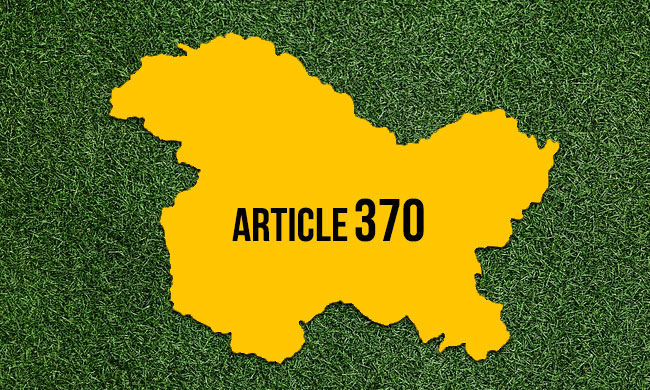ARTICLE 370 – BOON OR BANE TO JAMMU & KASHMIR?
Article 370 of the Indian constitution gave special status to the region of Jammu and Kashmir, allowing it to have a separate constitution, a state flag and autonomy over the internal administration of the state. This article, along with Article 35A, defined that Jammu and Kashmir's residents lived under a separate set of laws, including those related to citizenship, ownership of property and fundamental rights, as compared to the residents of other Indian states. As a result of this, Indian citizens from other states could not purchase land or property in Jammu & Kashmir.
The state of Jammu & Kashmir's original accession, like all other princely states, was on three matters: defence, foreign affairs and communications. All the princely states were invited to send representatives to India's Constituent Assembly, which was making a constitution for the whole of India. They were also encouraged to set up constituent assemblies for their own states. Even though the States Department developed a model constitution for the states, in May 1949, the rulers and chief ministers of all the states met and agreed that separate constitutions for the states were not necessary. They accepted the Constitution of India as their own constitution.
In the case of Jammu and Kashmir, the representatives to the Constituent Assembly requested that only those provisions of the Indian Constitution that corresponded to the original Instrument of Accession should be applied to the State. Accordingly, the Article 370 was incorporated into the Indian Constitution, which stipulated that the other articles of the Constitution that gave powers to the Central Government would be applied to Jammu and Kashmir only with the concurrence of the State's constituent assembly. This was a "temporary provision" that was intended to last till the adoption of the State's constitution. However, the State's constituent assembly dissolved itself on 25 January 1957 without recommending either abrogation or amendment of the Article 370. Thus, the Article has become a permanent feature of the Indian constitution, as confirmed by various rulings of the Supreme Court of India and the High Court of Jammu and Kashmir.
So, was the idea of removing Article 370 from the constitution good or bad? As per the 2014 BJP Election Manifesto, one of the promises was to abrogate Article 370 from the Constitution. Considering the political situation prevailing in J&K, it would have been better if this was done in an open and transparent manner. The idea seems good on paper but the execution feels like it was a hasty one like the demonetization.

